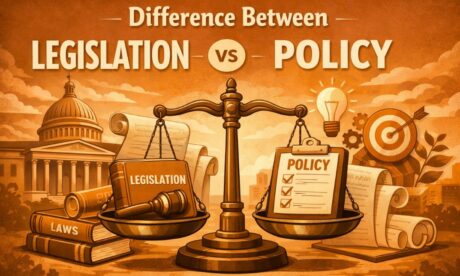Are you curious about starting a career in real estate but unsure where to begin? The process might seem complex, at first, it’s surprisingly simple once you understand the necessary steps. Real estate can be a highly rewarding career for those who love working with people, have a passion for property, and are ready to put in the effort to succeed.
This blog will explain the steps to becoming a real estate agent and what you need to know to start your journey.
What Is a Real Estate Agent?
A real estate agent is a professional who helps people buy, sell, or rent properties. They act as intermediaries between buyers and sellers, guiding both parties through the transaction process. Their responsibilities include marketing properties, arranging viewings, negotiating deals, and ensuring that all legal and financial aspects of a property transaction are handled correctly.
Real estate agents are licensed professionals, meaning they must meet specific educational and legal requirements to work in the field. Moreover, they possess detailed knowledge of the property market, pricing trends, and relevant laws, which allows them to provide valuable advice to their clients.

How to Become a Real Estate Agent?
So, how do you become a real estate agent? The steps may vary slightly depending on where you live, but the process generally includes the following:
Understand the Role of a Real Estate Agent
Before you can become a real estate agent, it’s essential to understand what the job entails. Real estate agents assist clients in buying, selling, or renting properties. Their responsibilities include:
- Researching the Market: Keeping up with property trends, prices, and demand in specific areas.
- Negotiating Deals: Helping clients get the best possible price for their property or purchase.
- Guiding Clients: Assisting with the legal and financial aspects of transactions, including contracts and financing options.
- Handling Paperwork: Managing contracts, disclosures, and other essential documentation.
- Maintaining Strong Communication: Ensuring clients feel informed and supported throughout the process.
- Staying Updated on Legal Requirements: Keeping informed about any changes in property laws and regulations.
Meet the Legal and Educational Requirements
In most cases, you’ll need at least a basic secondary education to start. Some regions may also require you to complete specific courses or training in real estate. These programmes often cover topics like property law, sales techniques, and market analysis. As a result, attending these courses provides you with the knowledge needed to pass your licensing exam.
Moreover, to work as a real estate agent, you must meet specific legal requirements in your country or region. In most cases, you’ll need to be at least 18 and have a high school diploma or equivalent depending on local laws, and have a clean criminal record.
Pass the Licensing Exam
After completing your education, the next step is to obtain your real estate license. Most regions require you to pass an exam that tests your understanding of the laws, practices, and ethical standards in real estate. Therefore, it’s important to prepare thoroughly. Once you have your licence, you can practise as a real estate agent.
Find a sponsoring broker
After passing your real estate exam, the next step is to find a sponsoring broker. This is a licensed professional or agency that supervises your work as you gain experience. Look for brokers with a strong reputation, training opportunities, and a commission structure you understand. Moreover, consider those who specialise in your area of interest and offer helpful resources like marketing tools or office space. Choosing the right sponsoring broker is crucial for your success, so take the time to find one that fits your goals.

Essential Qualities of a Successful Real Estate Agent
To excel in real estate, certain personal traits are just as important as market knowledge. Here are some key qualities every successful agent should have:
- Strong Communication Skills: Being able to explain complex concepts simply and listen to clients’ needs is crucial for building trust and guiding clients through the process.
- Patience: The property buying and selling process can take time. Staying calm and persistent helps both you and your clients through lengthy negotiations or challenges.
- Attention to Detail: Accuracy is vital, whether reviewing contracts or researching the market. Small mistakes can lead to big problems.
- Problem-Solving Abilities: Real estate deals often come with unexpected issues. The ability to find creative solutions quickly sets successful agents apart.
- Confidence: Clients need to trust your expertise. A confident, professional approach helps reassure them during the decision-making process.
- Negotiation Skills: Negotiating effectively between buyers and sellers is crucial. Being able to secure the best deals and manage different interests can significantly impact the success of a transaction.
Conclusion
Learning how to become a real estate agent is not just about completing the necessary steps but also about building a foundation for long-term success. By understanding the responsibilities, obtaining the proper education, and continuously developing your skills, you can create a rewarding career in real estate.
While the journey may seem demanding at first, the rewards of helping clients achieve their property goals make it all worthwhile. Therefore, if you’re ready to put in the effort, becoming a real estate agent could be the perfect career path for you.
Looking to build a successful career in real estate? With Unified Course’s Estate Agent Diploma, you’ll gain the skills and knowledge needed to thrive in the industry. Our expert-led training will help you build a solid foundation for long-term success, setting you on the path to helping clients achieve their property goals. Enrol today and start your journey towards a successful career in real estate!




